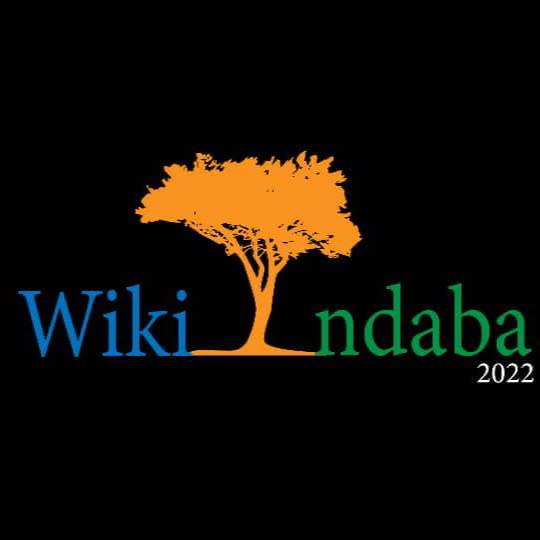This year’s WikiIndaba builds on past iterations of the conference by focusing on capacity building for African Wikimedians, expanding coverage and involvement of Africa in Wikimedia projects, connecting African Wikimedians both inside the continent and in the diaspora, and translating ideas into action. For the first time since 2019, the conference will be hosted in person on November 4-6, 2022, in Kigali, Rwanda.
Programme
After winning the bid to host the conference, we began planning by sending out a survey to African communities to learn which subject topics they would like to discuss at the conference, and a resounding majority mentioned discussions on the 2030 Movement Strategy, particularly those about establishing community, strategic debates, innovation, and research, as well as capacity building. In response to these replies, the theme for this year’s Wiki Indaba, “Advancing Africa’s Agenda in the Implementation of the 2030 Movement Strategy,” was developed!
Scholarships
If there is one thing we have learned from previous conferences, it is that scholarships are one of the most sensitive aspects of any Wikimedia conference organising process for the movement.
When the Wikimedia Foundation lifted the ban on international travel early this year and made it possible for Wiki Indaba 2022 to be held in person, a lot of countries still had Covid 19 restrictions in place, which influenced the conference planning right from the start. This included the grant application for the conference. Everything was changing rapidly and this presented us with a few challenges because it came at a time of uncertainty where we’ve had to make a grant application while we were not sure how the future will look like when the actual conference days come. After a few consultations with Wikimedia Foundation (WMF) and WikiIndaba Steering Committee (WISCom), our option was to have an in-person event which was going to be streamed online to allow for a physical participation and for joining online. In this regard, we’ve applied for funding to facilitate 40 full in person scholarships from the region, and a further 50 full and partial scholarships aimed towards the local community of volunteers.
Rising inflation also meant that our budget is almost double compared to that of the last in-person conference hosted in Nigeria in 2019. In spite of all these challenges we decided to allow a representation of all countries who applied for the scholarships. We have extended the limited scholarships for the 2022 Wiki Indaba to both experienced Wikimedians and newcomers, with a keen focus on gender parity as well.
In recent years, Africa has seen a remarkable surge in the number of new Wikimedians. The number of scholarship applicants for this year has nearly doubled since the last WikiIndaba in person in 2019. We have advised WISCom and the WMF to consider increasing the funding so that more individuals can attend the next conference in person.
Partners
Partners have played an important part in the WikiIndaba conference from its inception. This year, we are proud to have partnered with Afrika Tech Radio (AKI), Wiki in Africa, WikiVibrance, the African Union, BTN TV LTD, Rwanda cultural Heritage Academy, who will play an important role in generating media coverage for the conference, providing us with online platforms to stream the conference, and providing us with space, catering, and Wi-Fi for when we run preconference days for the local Wikimedia Community. It goes without saying that this conference will give us the opportunity to strengthen these collaborations beyond the conference, where we will benefit from the resources, and the partnership as the preconference days.
Future of WikiIndaba
As a Usergroup, we want to see African Wikimedians succeed, we feel that our outlook and challenges that continue to beset the African continent such as cultural and language diversity, gender gaps, young inexperienced but dynamic demographic, wide usage of cellphones to access Wikipedia, and the high cost of data, partnership, and funding put us in a unique position where all others can learn from us, and this conference gives us that opportunity to transform challenges into learning opportunities.

Can you help us translate this article?
In order for this article to reach as many people as possible we would like your help. Can you translate this article to get the message out?
Start translation
